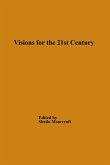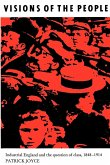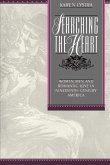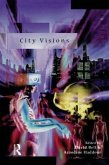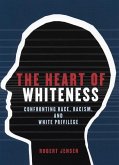Visions of the Heart
Issues Involving Indigenous Peoples in Canada
Herausgeber: Starblanket, Gina; Dickason, Olive Patricia; Long, David
Visions of the Heart
Issues Involving Indigenous Peoples in Canada
Herausgeber: Starblanket, Gina; Dickason, Olive Patricia; Long, David
- Broschiertes Buch
- Merkliste
- Auf die Merkliste
- Bewerten Bewerten
- Teilen
- Produkt teilen
- Produkterinnerung
- Produkterinnerung
Visions of the Heart, 5e, is an inclusive, current, and interdisciplinary exploration of matters that are of immediate concern to Indigenous Peoples today, as well as Indigenous futures within Canada.
Andere Kunden interessierten sich auch für
![Visions for the 21st Century Visions for the 21st Century]() UnknownVisions for the 21st Century42,99 €
UnknownVisions for the 21st Century42,99 €![Visions of the People Visions of the People]() Patrick JoyceVisions of the People57,99 €
Patrick JoyceVisions of the People57,99 €![Peripheral Visions in the Globalizing Present Peripheral Visions in the Globalizing Present]() Peripheral Visions in the Globalizing Present118,99 €
Peripheral Visions in the Globalizing Present118,99 €![Searching the Heart Searching the Heart]() Karen LystraSearching the Heart71,99 €
Karen LystraSearching the Heart71,99 €![City Visions City Visions]() David BellCity Visions88,99 €
David BellCity Visions88,99 €![The Heart of Whiteness: Confronting Race, Racism and White Privilege The Heart of Whiteness: Confronting Race, Racism and White Privilege]() Robert JensenThe Heart of Whiteness: Confronting Race, Racism and White Privilege13,99 €
Robert JensenThe Heart of Whiteness: Confronting Race, Racism and White Privilege13,99 €![At the Heart of Work and Family At the Heart of Work and Family]() At the Heart of Work and Family51,99 €
At the Heart of Work and Family51,99 €-
-
-
Visions of the Heart, 5e, is an inclusive, current, and interdisciplinary exploration of matters that are of immediate concern to Indigenous Peoples today, as well as Indigenous futures within Canada.
Hinweis: Dieser Artikel kann nur an eine deutsche Lieferadresse ausgeliefert werden.
Hinweis: Dieser Artikel kann nur an eine deutsche Lieferadresse ausgeliefert werden.
Produktdetails
- Produktdetails
- Verlag: Hurst & Co.
- 5th edition
- Seitenzahl: 312
- Erscheinungstermin: 16. März 2020
- Englisch
- Abmessung: 231mm x 191mm x 18mm
- Gewicht: 544g
- ISBN-13: 9780199033447
- ISBN-10: 0199033447
- Artikelnr.: 58342228
- Herstellerkennzeichnung
- Libri GmbH
- Europaallee 1
- 36244 Bad Hersfeld
- gpsr@libri.de
- Verlag: Hurst & Co.
- 5th edition
- Seitenzahl: 312
- Erscheinungstermin: 16. März 2020
- Englisch
- Abmessung: 231mm x 191mm x 18mm
- Gewicht: 544g
- ISBN-13: 9780199033447
- ISBN-10: 0199033447
- Artikelnr.: 58342228
- Herstellerkennzeichnung
- Libri GmbH
- Europaallee 1
- 36244 Bad Hersfeld
- gpsr@libri.de
Gina Starblanket, University of Calgary Gina is an assistant professor in the Department of Political Science. Gina is Cree/Salteaux and a member of the Star Blanket Cree Nation in Treaty 4 territory in Saskatchewan. Gina's research is and has been geared toward bringing about change to the way the Indigenous-state relationship is set up. Her research has a practical application to the world around her, and to the intersectional and community-driven approach she uses to explore research questions. She recently completed her PhD in Fall 2018. David Long, The King's University David is a professor of Sociology and is committed to cultivating deeper understanding and appreciation for the experiences, strengths, and contributions of diverse populations in Canada. He has received numerous awards for the contributions that earlier editions of Visions of the Heart have made to our understanding of relations between Indigenous and non-Indigenous peoples in Canada The late Olive Patricia Dickason, University of Alberta Dr. Dickason was a professor emeritus at the University of Alberta and adjunct professor of history at the University of Ottawa. She was named a Member of the Order of Canada in 1996 and received the Aboriginal Life Achievement Award, Canadian Native Arts Foundation, in 1997. In 2017, the University of Alberta held an event to recognize her contribution to scholarship. Throughout her distinguished career she remained proud of her Métis heritage.
* Table of Contents
* Acknowledgements
* Contributors
* Introduction
* Gina Starblanket and David Long
* Understanding the Crises in the Current Relations between Indigenous
and Non-Indigenous Peoples in Canada
* Honouring Diverse Indigenous Knowledge
* Interrogating the Ways, Means, and Framings of Colonialism
* Concluding Remarks
* Chapter 1: Crises of Relationship: The Role of Treaties in
Contemporary Indigenous-Settler Relations
* Gina Starblanket
* Introduction
* Reviewing the Contested Terrain of Relationship
* Demythologizing Treaties
* Relational Understanding
* Are Treaties Relevant, and to Whom?
* For a Better Future
* Discussion Questions
* Recommended Reading
* Notes
* Chapter 2: The "Canada Problem" in Indigenous Politics
* David Newhouse and Yale Belanger
* Introduction
* Indigenous Peoples and Canada
* The Colonial Legacy
* Addressing the "Indian Problem" in the Second Half of the Twentieth
Century
* Addressing the "Canada Problem"
* The Push for Indigenous Self-Government
* The Penner Report, 1983
* Into the Twenty-First Century
* Concluding Remarks on a Way Forward
* Discussion Questions
* Recommended Reading
* Additional Resources
* Notes
* Chapter 3: Nishnaabeg Brilliance as Radical Resurgence Theory
* Leanne Betasamosake Simpson
* Biiskabiyang and Flight
* Nishnaabewin as Grounded Normativity
* Discussion Questions
* Recommended Reading
* Recommended Resources
* Notes
* Chapter 4: Colonialism, Gender Violence, and the Making of the
Canadian State
* Heidi Kiiwetinepinesiik Stark
* Domesticity and the Construction of Indigenous Deviancy
* Marking Indigenous Bodies for Death
* Freezing Indigenous Identity in the Past
* Conclusion
* Discussion Questions
* Recommended Reading
* Additional Resources
* Notes
* Chapter 5: Piecing Together Modern Treaty Politics in the Yukon
* Lianne Marie Leda Charlie
* Introduction
* Modern Treaty Politics in the Yukon
* Critiques and Concerns
* Conclusion
* Discussion Questions
* Recommended Reading
* Additional Resources
* Chapter 6: "The Place Where the Hearts Gather": Against
Damage-Centred Narratives of Urban Indigeneity
* Dallas Hunt
* Introduction
* Historical and Literary Contexts
* Indigenous (Re)Framings of "Urban Indigeneity"
* Methodology
* Resurgent Indians
* Conclusion
* Discussion Questions
* Recommended Reading
* Notes
* Chapter 7: Why Calgary isn't Métis Territory: Jigging Towards an
Ethic of Reciprocal Visiting
* Daniel Voth and Jessie Loyer
* Introduction
* Who Are the Métis?
* Being in a Place Does Not Make It Yours
* How to Jig in Treaty 7 While Being a Good Guest
* Towards an Ethic of Reciprocal Visiting, or, How Not to Be an Asshole
Outside Your Territory
* Conclusion
* Discussion Questions
* Recommended Reading
* Notes
* Chapter 8: Transforming Toxic Indigenous Masculinity: A Critical
Indigenous Masculinities and Indigenous Film Studies Approach to
Drunktown's Finest
* Renae Watchman and Robert Alexander Innes
* Introduction
* Critical Indigenous Masculinities
* Indigenous Film Studies
* Drunktown's Finest
* Discussion Questions
* Recommended Reading
* Notes
* Chapter 9: Foundations: First Nation and Métis Families
* Kim Anderson and Jessica Ball
* Introduction
* Foundations: Kinship and Historical Indigenous Societies
* Dismantling the Foundation
* First Nation and Métis Families Today
* Putting the Pieces Back Together
* Conclusion
* Acknowledgments
* Discussion Questions
* Recommended Reading
* Additional Resources
* Notes
* Chapter 10: Terminating Canada's Failed System of Injustice:
Unmasking Colonialism, Redefining Relationships, and Re-establishing
Balance
* Lisa Monchalin and Olga Marques
* Introduction: The Continued Failure of the Canadian Criminal Justice
System
* The Mass Incarceration and Disproportionate Victimization of
Indigenous Peoples
* The Colonizing Approach to Justice: Police, Courts, and Corrections
* Colonial Continuity and Participatory Criminal Justice Programming
* Indigenous Peoples and Sentencing Initiatives
* Structurally Racist Criminal Justice System
* The Way Forward: Re-establishing Peace, Friendship, and Indigenous
Systems of Justice
* Discussion Questions
* Recommended Reading
* Additional Resources
* Notes
* Chapter 11: All Our Relations: Indigenous Perspectives on
Environmental Issues in Canada
* Deborah McGregor
* Introduction
* Indigenous Concepts of Environment: All of Creation
* Indigenous Legal Traditions and Environmental Responsibilities
* Historical Context: Dispossession of Lands and the Environmental
Crisis
* Increasing Indigenous Control in Environmental Governance
* Reconciliation with the Natural World
* Moving Forward: Nation-to-Nation Relationships
* Discussion Questions
* Recommended Reading
* Additional Resources
* Notes
* Chapter 12: Learning from Indigenous Knowledge in Education
* Jan Hare and Sara Florence Davidson
* Introduction
* The Role of Indigenous Knowledge in Traditional Education
* Colonizing Indigenous Knowledge in Education
* The Intergenerational Legacy of Residential Schooling
* Creating Space for Indigenous Knowledge in Education Today
* The Way Ahead
* Discussion Questions
* Recommended Reading
* Additional Resources
* Notes
* Chapter 13: Moosehide Tanning and Wellness in the North
* Mandee McDonald
* Introduction
* Self-Location
* Method
* Land-Based Education
* Interview with Stephanie Poole
* Interview with Cheyanna Fraser
* On-the-Land Programming
* Obstacles and Opportunities
* Conclusion
* Discussion Questions
* Additional Resources
* Notes
* Chapter 14: Enacting Reconciliation
* Joyce Green
* Introduction: The Formation of the TRC
* Colonialism Then and Now
* Recognition, Remorse, Restitution, Reconciliation
* Enacting Reconciliation
* Ignorance, Myth, and Memory
* Reconciliation: Really?
* Discussion Questions
* Recommended Reading
* Notes
* Imagining New Futures: A Concluding Dialogue
* Glossary
* References
* Index
* Acknowledgements
* Contributors
* Introduction
* Gina Starblanket and David Long
* Understanding the Crises in the Current Relations between Indigenous
and Non-Indigenous Peoples in Canada
* Honouring Diverse Indigenous Knowledge
* Interrogating the Ways, Means, and Framings of Colonialism
* Concluding Remarks
* Chapter 1: Crises of Relationship: The Role of Treaties in
Contemporary Indigenous-Settler Relations
* Gina Starblanket
* Introduction
* Reviewing the Contested Terrain of Relationship
* Demythologizing Treaties
* Relational Understanding
* Are Treaties Relevant, and to Whom?
* For a Better Future
* Discussion Questions
* Recommended Reading
* Notes
* Chapter 2: The "Canada Problem" in Indigenous Politics
* David Newhouse and Yale Belanger
* Introduction
* Indigenous Peoples and Canada
* The Colonial Legacy
* Addressing the "Indian Problem" in the Second Half of the Twentieth
Century
* Addressing the "Canada Problem"
* The Push for Indigenous Self-Government
* The Penner Report, 1983
* Into the Twenty-First Century
* Concluding Remarks on a Way Forward
* Discussion Questions
* Recommended Reading
* Additional Resources
* Notes
* Chapter 3: Nishnaabeg Brilliance as Radical Resurgence Theory
* Leanne Betasamosake Simpson
* Biiskabiyang and Flight
* Nishnaabewin as Grounded Normativity
* Discussion Questions
* Recommended Reading
* Recommended Resources
* Notes
* Chapter 4: Colonialism, Gender Violence, and the Making of the
Canadian State
* Heidi Kiiwetinepinesiik Stark
* Domesticity and the Construction of Indigenous Deviancy
* Marking Indigenous Bodies for Death
* Freezing Indigenous Identity in the Past
* Conclusion
* Discussion Questions
* Recommended Reading
* Additional Resources
* Notes
* Chapter 5: Piecing Together Modern Treaty Politics in the Yukon
* Lianne Marie Leda Charlie
* Introduction
* Modern Treaty Politics in the Yukon
* Critiques and Concerns
* Conclusion
* Discussion Questions
* Recommended Reading
* Additional Resources
* Chapter 6: "The Place Where the Hearts Gather": Against
Damage-Centred Narratives of Urban Indigeneity
* Dallas Hunt
* Introduction
* Historical and Literary Contexts
* Indigenous (Re)Framings of "Urban Indigeneity"
* Methodology
* Resurgent Indians
* Conclusion
* Discussion Questions
* Recommended Reading
* Notes
* Chapter 7: Why Calgary isn't Métis Territory: Jigging Towards an
Ethic of Reciprocal Visiting
* Daniel Voth and Jessie Loyer
* Introduction
* Who Are the Métis?
* Being in a Place Does Not Make It Yours
* How to Jig in Treaty 7 While Being a Good Guest
* Towards an Ethic of Reciprocal Visiting, or, How Not to Be an Asshole
Outside Your Territory
* Conclusion
* Discussion Questions
* Recommended Reading
* Notes
* Chapter 8: Transforming Toxic Indigenous Masculinity: A Critical
Indigenous Masculinities and Indigenous Film Studies Approach to
Drunktown's Finest
* Renae Watchman and Robert Alexander Innes
* Introduction
* Critical Indigenous Masculinities
* Indigenous Film Studies
* Drunktown's Finest
* Discussion Questions
* Recommended Reading
* Notes
* Chapter 9: Foundations: First Nation and Métis Families
* Kim Anderson and Jessica Ball
* Introduction
* Foundations: Kinship and Historical Indigenous Societies
* Dismantling the Foundation
* First Nation and Métis Families Today
* Putting the Pieces Back Together
* Conclusion
* Acknowledgments
* Discussion Questions
* Recommended Reading
* Additional Resources
* Notes
* Chapter 10: Terminating Canada's Failed System of Injustice:
Unmasking Colonialism, Redefining Relationships, and Re-establishing
Balance
* Lisa Monchalin and Olga Marques
* Introduction: The Continued Failure of the Canadian Criminal Justice
System
* The Mass Incarceration and Disproportionate Victimization of
Indigenous Peoples
* The Colonizing Approach to Justice: Police, Courts, and Corrections
* Colonial Continuity and Participatory Criminal Justice Programming
* Indigenous Peoples and Sentencing Initiatives
* Structurally Racist Criminal Justice System
* The Way Forward: Re-establishing Peace, Friendship, and Indigenous
Systems of Justice
* Discussion Questions
* Recommended Reading
* Additional Resources
* Notes
* Chapter 11: All Our Relations: Indigenous Perspectives on
Environmental Issues in Canada
* Deborah McGregor
* Introduction
* Indigenous Concepts of Environment: All of Creation
* Indigenous Legal Traditions and Environmental Responsibilities
* Historical Context: Dispossession of Lands and the Environmental
Crisis
* Increasing Indigenous Control in Environmental Governance
* Reconciliation with the Natural World
* Moving Forward: Nation-to-Nation Relationships
* Discussion Questions
* Recommended Reading
* Additional Resources
* Notes
* Chapter 12: Learning from Indigenous Knowledge in Education
* Jan Hare and Sara Florence Davidson
* Introduction
* The Role of Indigenous Knowledge in Traditional Education
* Colonizing Indigenous Knowledge in Education
* The Intergenerational Legacy of Residential Schooling
* Creating Space for Indigenous Knowledge in Education Today
* The Way Ahead
* Discussion Questions
* Recommended Reading
* Additional Resources
* Notes
* Chapter 13: Moosehide Tanning and Wellness in the North
* Mandee McDonald
* Introduction
* Self-Location
* Method
* Land-Based Education
* Interview with Stephanie Poole
* Interview with Cheyanna Fraser
* On-the-Land Programming
* Obstacles and Opportunities
* Conclusion
* Discussion Questions
* Additional Resources
* Notes
* Chapter 14: Enacting Reconciliation
* Joyce Green
* Introduction: The Formation of the TRC
* Colonialism Then and Now
* Recognition, Remorse, Restitution, Reconciliation
* Enacting Reconciliation
* Ignorance, Myth, and Memory
* Reconciliation: Really?
* Discussion Questions
* Recommended Reading
* Notes
* Imagining New Futures: A Concluding Dialogue
* Glossary
* References
* Index
* Table of Contents
* Acknowledgements
* Contributors
* Introduction
* Gina Starblanket and David Long
* Understanding the Crises in the Current Relations between Indigenous
and Non-Indigenous Peoples in Canada
* Honouring Diverse Indigenous Knowledge
* Interrogating the Ways, Means, and Framings of Colonialism
* Concluding Remarks
* Chapter 1: Crises of Relationship: The Role of Treaties in
Contemporary Indigenous-Settler Relations
* Gina Starblanket
* Introduction
* Reviewing the Contested Terrain of Relationship
* Demythologizing Treaties
* Relational Understanding
* Are Treaties Relevant, and to Whom?
* For a Better Future
* Discussion Questions
* Recommended Reading
* Notes
* Chapter 2: The "Canada Problem" in Indigenous Politics
* David Newhouse and Yale Belanger
* Introduction
* Indigenous Peoples and Canada
* The Colonial Legacy
* Addressing the "Indian Problem" in the Second Half of the Twentieth
Century
* Addressing the "Canada Problem"
* The Push for Indigenous Self-Government
* The Penner Report, 1983
* Into the Twenty-First Century
* Concluding Remarks on a Way Forward
* Discussion Questions
* Recommended Reading
* Additional Resources
* Notes
* Chapter 3: Nishnaabeg Brilliance as Radical Resurgence Theory
* Leanne Betasamosake Simpson
* Biiskabiyang and Flight
* Nishnaabewin as Grounded Normativity
* Discussion Questions
* Recommended Reading
* Recommended Resources
* Notes
* Chapter 4: Colonialism, Gender Violence, and the Making of the
Canadian State
* Heidi Kiiwetinepinesiik Stark
* Domesticity and the Construction of Indigenous Deviancy
* Marking Indigenous Bodies for Death
* Freezing Indigenous Identity in the Past
* Conclusion
* Discussion Questions
* Recommended Reading
* Additional Resources
* Notes
* Chapter 5: Piecing Together Modern Treaty Politics in the Yukon
* Lianne Marie Leda Charlie
* Introduction
* Modern Treaty Politics in the Yukon
* Critiques and Concerns
* Conclusion
* Discussion Questions
* Recommended Reading
* Additional Resources
* Chapter 6: "The Place Where the Hearts Gather": Against
Damage-Centred Narratives of Urban Indigeneity
* Dallas Hunt
* Introduction
* Historical and Literary Contexts
* Indigenous (Re)Framings of "Urban Indigeneity"
* Methodology
* Resurgent Indians
* Conclusion
* Discussion Questions
* Recommended Reading
* Notes
* Chapter 7: Why Calgary isn't Métis Territory: Jigging Towards an
Ethic of Reciprocal Visiting
* Daniel Voth and Jessie Loyer
* Introduction
* Who Are the Métis?
* Being in a Place Does Not Make It Yours
* How to Jig in Treaty 7 While Being a Good Guest
* Towards an Ethic of Reciprocal Visiting, or, How Not to Be an Asshole
Outside Your Territory
* Conclusion
* Discussion Questions
* Recommended Reading
* Notes
* Chapter 8: Transforming Toxic Indigenous Masculinity: A Critical
Indigenous Masculinities and Indigenous Film Studies Approach to
Drunktown's Finest
* Renae Watchman and Robert Alexander Innes
* Introduction
* Critical Indigenous Masculinities
* Indigenous Film Studies
* Drunktown's Finest
* Discussion Questions
* Recommended Reading
* Notes
* Chapter 9: Foundations: First Nation and Métis Families
* Kim Anderson and Jessica Ball
* Introduction
* Foundations: Kinship and Historical Indigenous Societies
* Dismantling the Foundation
* First Nation and Métis Families Today
* Putting the Pieces Back Together
* Conclusion
* Acknowledgments
* Discussion Questions
* Recommended Reading
* Additional Resources
* Notes
* Chapter 10: Terminating Canada's Failed System of Injustice:
Unmasking Colonialism, Redefining Relationships, and Re-establishing
Balance
* Lisa Monchalin and Olga Marques
* Introduction: The Continued Failure of the Canadian Criminal Justice
System
* The Mass Incarceration and Disproportionate Victimization of
Indigenous Peoples
* The Colonizing Approach to Justice: Police, Courts, and Corrections
* Colonial Continuity and Participatory Criminal Justice Programming
* Indigenous Peoples and Sentencing Initiatives
* Structurally Racist Criminal Justice System
* The Way Forward: Re-establishing Peace, Friendship, and Indigenous
Systems of Justice
* Discussion Questions
* Recommended Reading
* Additional Resources
* Notes
* Chapter 11: All Our Relations: Indigenous Perspectives on
Environmental Issues in Canada
* Deborah McGregor
* Introduction
* Indigenous Concepts of Environment: All of Creation
* Indigenous Legal Traditions and Environmental Responsibilities
* Historical Context: Dispossession of Lands and the Environmental
Crisis
* Increasing Indigenous Control in Environmental Governance
* Reconciliation with the Natural World
* Moving Forward: Nation-to-Nation Relationships
* Discussion Questions
* Recommended Reading
* Additional Resources
* Notes
* Chapter 12: Learning from Indigenous Knowledge in Education
* Jan Hare and Sara Florence Davidson
* Introduction
* The Role of Indigenous Knowledge in Traditional Education
* Colonizing Indigenous Knowledge in Education
* The Intergenerational Legacy of Residential Schooling
* Creating Space for Indigenous Knowledge in Education Today
* The Way Ahead
* Discussion Questions
* Recommended Reading
* Additional Resources
* Notes
* Chapter 13: Moosehide Tanning and Wellness in the North
* Mandee McDonald
* Introduction
* Self-Location
* Method
* Land-Based Education
* Interview with Stephanie Poole
* Interview with Cheyanna Fraser
* On-the-Land Programming
* Obstacles and Opportunities
* Conclusion
* Discussion Questions
* Additional Resources
* Notes
* Chapter 14: Enacting Reconciliation
* Joyce Green
* Introduction: The Formation of the TRC
* Colonialism Then and Now
* Recognition, Remorse, Restitution, Reconciliation
* Enacting Reconciliation
* Ignorance, Myth, and Memory
* Reconciliation: Really?
* Discussion Questions
* Recommended Reading
* Notes
* Imagining New Futures: A Concluding Dialogue
* Glossary
* References
* Index
* Acknowledgements
* Contributors
* Introduction
* Gina Starblanket and David Long
* Understanding the Crises in the Current Relations between Indigenous
and Non-Indigenous Peoples in Canada
* Honouring Diverse Indigenous Knowledge
* Interrogating the Ways, Means, and Framings of Colonialism
* Concluding Remarks
* Chapter 1: Crises of Relationship: The Role of Treaties in
Contemporary Indigenous-Settler Relations
* Gina Starblanket
* Introduction
* Reviewing the Contested Terrain of Relationship
* Demythologizing Treaties
* Relational Understanding
* Are Treaties Relevant, and to Whom?
* For a Better Future
* Discussion Questions
* Recommended Reading
* Notes
* Chapter 2: The "Canada Problem" in Indigenous Politics
* David Newhouse and Yale Belanger
* Introduction
* Indigenous Peoples and Canada
* The Colonial Legacy
* Addressing the "Indian Problem" in the Second Half of the Twentieth
Century
* Addressing the "Canada Problem"
* The Push for Indigenous Self-Government
* The Penner Report, 1983
* Into the Twenty-First Century
* Concluding Remarks on a Way Forward
* Discussion Questions
* Recommended Reading
* Additional Resources
* Notes
* Chapter 3: Nishnaabeg Brilliance as Radical Resurgence Theory
* Leanne Betasamosake Simpson
* Biiskabiyang and Flight
* Nishnaabewin as Grounded Normativity
* Discussion Questions
* Recommended Reading
* Recommended Resources
* Notes
* Chapter 4: Colonialism, Gender Violence, and the Making of the
Canadian State
* Heidi Kiiwetinepinesiik Stark
* Domesticity and the Construction of Indigenous Deviancy
* Marking Indigenous Bodies for Death
* Freezing Indigenous Identity in the Past
* Conclusion
* Discussion Questions
* Recommended Reading
* Additional Resources
* Notes
* Chapter 5: Piecing Together Modern Treaty Politics in the Yukon
* Lianne Marie Leda Charlie
* Introduction
* Modern Treaty Politics in the Yukon
* Critiques and Concerns
* Conclusion
* Discussion Questions
* Recommended Reading
* Additional Resources
* Chapter 6: "The Place Where the Hearts Gather": Against
Damage-Centred Narratives of Urban Indigeneity
* Dallas Hunt
* Introduction
* Historical and Literary Contexts
* Indigenous (Re)Framings of "Urban Indigeneity"
* Methodology
* Resurgent Indians
* Conclusion
* Discussion Questions
* Recommended Reading
* Notes
* Chapter 7: Why Calgary isn't Métis Territory: Jigging Towards an
Ethic of Reciprocal Visiting
* Daniel Voth and Jessie Loyer
* Introduction
* Who Are the Métis?
* Being in a Place Does Not Make It Yours
* How to Jig in Treaty 7 While Being a Good Guest
* Towards an Ethic of Reciprocal Visiting, or, How Not to Be an Asshole
Outside Your Territory
* Conclusion
* Discussion Questions
* Recommended Reading
* Notes
* Chapter 8: Transforming Toxic Indigenous Masculinity: A Critical
Indigenous Masculinities and Indigenous Film Studies Approach to
Drunktown's Finest
* Renae Watchman and Robert Alexander Innes
* Introduction
* Critical Indigenous Masculinities
* Indigenous Film Studies
* Drunktown's Finest
* Discussion Questions
* Recommended Reading
* Notes
* Chapter 9: Foundations: First Nation and Métis Families
* Kim Anderson and Jessica Ball
* Introduction
* Foundations: Kinship and Historical Indigenous Societies
* Dismantling the Foundation
* First Nation and Métis Families Today
* Putting the Pieces Back Together
* Conclusion
* Acknowledgments
* Discussion Questions
* Recommended Reading
* Additional Resources
* Notes
* Chapter 10: Terminating Canada's Failed System of Injustice:
Unmasking Colonialism, Redefining Relationships, and Re-establishing
Balance
* Lisa Monchalin and Olga Marques
* Introduction: The Continued Failure of the Canadian Criminal Justice
System
* The Mass Incarceration and Disproportionate Victimization of
Indigenous Peoples
* The Colonizing Approach to Justice: Police, Courts, and Corrections
* Colonial Continuity and Participatory Criminal Justice Programming
* Indigenous Peoples and Sentencing Initiatives
* Structurally Racist Criminal Justice System
* The Way Forward: Re-establishing Peace, Friendship, and Indigenous
Systems of Justice
* Discussion Questions
* Recommended Reading
* Additional Resources
* Notes
* Chapter 11: All Our Relations: Indigenous Perspectives on
Environmental Issues in Canada
* Deborah McGregor
* Introduction
* Indigenous Concepts of Environment: All of Creation
* Indigenous Legal Traditions and Environmental Responsibilities
* Historical Context: Dispossession of Lands and the Environmental
Crisis
* Increasing Indigenous Control in Environmental Governance
* Reconciliation with the Natural World
* Moving Forward: Nation-to-Nation Relationships
* Discussion Questions
* Recommended Reading
* Additional Resources
* Notes
* Chapter 12: Learning from Indigenous Knowledge in Education
* Jan Hare and Sara Florence Davidson
* Introduction
* The Role of Indigenous Knowledge in Traditional Education
* Colonizing Indigenous Knowledge in Education
* The Intergenerational Legacy of Residential Schooling
* Creating Space for Indigenous Knowledge in Education Today
* The Way Ahead
* Discussion Questions
* Recommended Reading
* Additional Resources
* Notes
* Chapter 13: Moosehide Tanning and Wellness in the North
* Mandee McDonald
* Introduction
* Self-Location
* Method
* Land-Based Education
* Interview with Stephanie Poole
* Interview with Cheyanna Fraser
* On-the-Land Programming
* Obstacles and Opportunities
* Conclusion
* Discussion Questions
* Additional Resources
* Notes
* Chapter 14: Enacting Reconciliation
* Joyce Green
* Introduction: The Formation of the TRC
* Colonialism Then and Now
* Recognition, Remorse, Restitution, Reconciliation
* Enacting Reconciliation
* Ignorance, Myth, and Memory
* Reconciliation: Really?
* Discussion Questions
* Recommended Reading
* Notes
* Imagining New Futures: A Concluding Dialogue
* Glossary
* References
* Index


